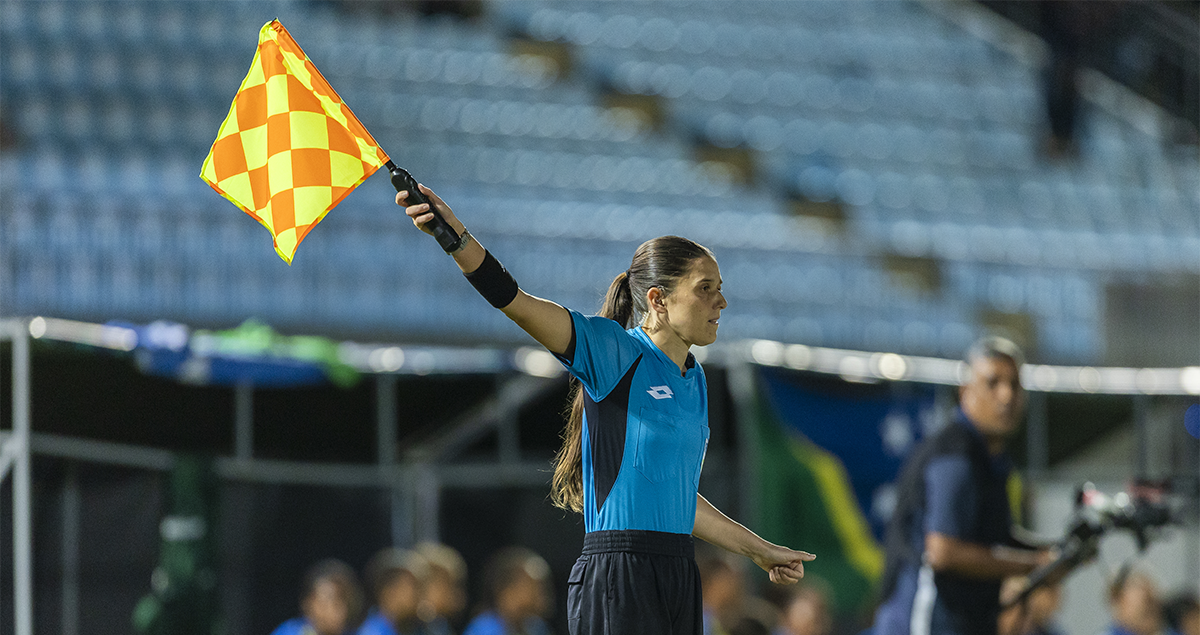Three Oceania referees have been chosen to help officiate at this year’s FIFA U-17 Women’s World Cup in Morocco.
Fiji’s Torika Delai is among the pool of 18 referees for the tournament, while Natalia Lumukana (Solomon Islands) and Allys Clipsham (New Zealand) have been appointed to the 36-strong assistant referees’ list.
Main photo: New Zealand’s Allys Clipsham. Photo credit: Kirk Corrie / Phototek.
The tournament will take place from October 17-November 8, 2025.
Delai is Fiji’s only female FIFA referee and last month presided over the high-profile clash between Australia and Slovenia.
Lumukana has been a FIFA assistant referee since 2019 while Clipsham received her FIFA badge this year. Both were part of the history all-female officiating panel to lead a men’s OFC tournament earlier this year.
“It is always exciting for me when announcements such as this one are made, but this one is even more special than normal. This year’s tournament is the first of the annual competitions to be played in Morocco over the next five years, and the first edition with 24 participating teams,” chairman of the FIFA Referees Committee, Pierluigi Collina, said.
“Just as it is crucial for match officials to gain experience on the global stage, so it is vital for young players to be given the opportunity to test themselves against the very best in the world in their age category.
“The FIFA U-17 Women’s World Cup Morocco 2025 will provide those playing and those officiating with an invaluable chance to learn, improve and grow in their chosen fields, all for the good of the game.”
The use of Football Video Support (FVS) at the tournament follows trials implemented last year at the FIFA U-20 Women’s World Cup in Colombia and the FIFA U-17 Women’s World Cup in the Dominican Republic.
They were the result of numerous requests from FIFA MAs for an alternative, cost-effective way of using technology to support match officials.
Unlike the Video Assistant Referee (VAR) system, FVS does not use dedicated video match officials and therefore does not check all match-changing incidents.
Instead, the onus falls on the respective head coaches, who are allowed to make a limited number of review requests per game when they feel that a clear and obvious error has been made in match-changing incidents, such as goals, penalty decisions, direct red card incidents or cases of mistaken identity.
The players can also recommend their coaches request a review.
FIFA head of women’s fefereeing Bibiana Steinhaus-Webb said: “Morocco will be the home of the FIFA U-17 Women’s World Cup for the next five years, and the country shows such a passion for women’s football that we can’t wait for the tournament to start.
“The women’s game is continuously growing, as is this tournament, which will — for the first time — take place with 24 teams. More diversity equals more opportunities for match officials to show just how much they are in tune with the game and its expectations.”
This story was first published on August 2, 2025.
